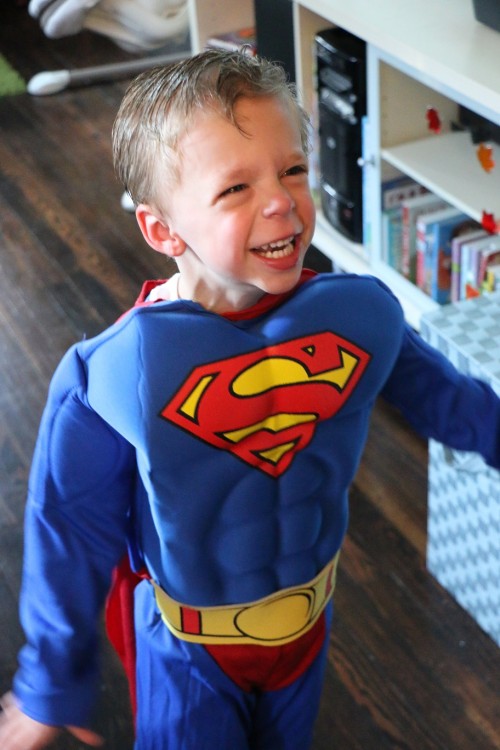When Writing an IEP Gave Me an ‘Aha’ Moment About Special Needs Parenting
Editor's Note
Hi there, this is just a quick note to let you know that you’ve reached one of our older stories here on The Mighty, and it contains some outdated language. We’ve updated our editorial guidelines, and no longer use “special needs” to refer to children or adults with disabilities. “Disabled” is not a bad word, and children with disabilities have human needs, not special needs. You can learn more about the reasons for this change here. We’ve updated our vocabulary, and we hope you will, too.
My son has special needs, and I have been a special education teacher since 2000 (with a two-year break after having my son, Evan). I also have my certification to be a learning disabilities teacher consultant (the learning consultant on a child study team). I taught for 11 years before having my son (who is now 4 years old), and all of those years were spent with elementary-school-age children with varying degrees of need.
I gained a truckload of patience I did not possess before becoming a teacher. I learned how to see the talents in a child rather than focus on the deficits. I learned how to pick my battles with oppositional students. I discovered that a huge part of being an educator are the relationships you develop with the parents of your students. Contacting parents and having difficult conversations about their children has never been my strong point. I tend to avoid confrontation, and I have never felt confident making those difficult phone calls — even when I know my points are valid.
But I never imagined how different I would feel when I sat down this past spring to write an IEP for one of the students I teach. I hadn’t written one since before I delivered Evan. I typed up a sentence about this particular student, one that described his dependence on his teachers and one of his weaknesses. After my fingers clicked away, entering the sentence into the system, I found myself feeling uncomfortable. I reread the sentence approximately five times. I realized I was trying to imagine what I would feel like if Evan had that sentence written in his IEP.
Would I appreciate the wording?
Would I agree with the observation?
Is it necessary?
Here I was wearing my teacher hat, but my mama bear hat was sewn into the brim and there was no stopping her.
This same feeling occurred with each IEP I wrote. I thought longer about each objective. I scrutinized each comment. Was I being thorough? Is the objective measurable and clear? I also found myself feeling more guilty when I would become frustrated with one of my students. After giving the same direction numerous times, and day after day needing to give the same reminders, I found myself becoming short and visibly agitated with one of my students. This particular student is not easily ruffled, and it didn’t seem to phase him one bit, which of course led me to feel more guilt.

I can remember sitting at my desk, eating my lunch and thinking, “Erin, that child is doing the best he can with what he has.” My next thought was, “God, please let Evan’s teachers realize that about him. “Please let him try his best, and let his best be enough for his teachers.”
Boom.
One of those moments when you feel like Oprah should appear in the doorway saying, “There it is!”
Your “Aha!” moment.
I need to listen to that little voice inside me that prayed Evan’s best would be enough for his teachers at school. I need to accept Evan’s best efforts as well. Not to say that I should not have high expectations for him and help him to strive to rise to the occasion, but when he does, when he is trying his very best to use all he has to accomplish something and it is just not working out the way it is supposed to… I need to realize that it is enough.
His effort is enough. He is enough.
The word combinations he is making today are enough.
The attention span that causes him to flit from one activity to the next — it is enough.
The sensitive hearing that has increased in the past month — it is enough.
I just don’t want him to lose his spark. Please let his teachers fuel the spark. Inspire him to try his best.
And let me do so with my students.
Let my best be enough.
Follow this journey on Musings by Mama.
The Mighty is asking its readers the following: Describe the moment someone changed the way you think about disability, disease or mental illness. If you’d like to participate, please send a blog post to community@themighty.com. Please include a photo for the piece, a photo of yourself and 1-2 sentence bio. Check out our Submit a Story page for more about our submission guidelines.

